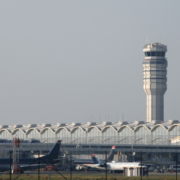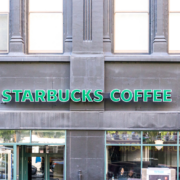Media Contact: Lisa McDonald, Vice President of Communications, 202-207-2829
Washington, DC — As an organization with a long history of helping the public avoid fakes and unregulated products, the National Consumers League (NCL) is urging consumers and health professionals to heed the warning from the Food and Drug Administration that compounded versions of GLP-1 (glucagon-like peptide-1 (GLP-1) receptor agonists) drugs now widely promoted on television and online are not FDA approved and may cause serious health problems.
Because studies show that FDA-approved anti-obesity medications (semaglutide and tirzepatide) can help individuals achieve significant weight loss, demand for GLP-1s has surged, prompting supply shortages and consumers to seek alternative ways to obtain these drugs because many health plans do not cover GLP-1s. This dynamic first opened the door for compounding pharmacies to sell non-identical versions of GLP-1 drugs under specific FDA regulations that apply when there is a shortage. Yet now, consumers are navigating a largely unregulated marketplace where numerous actors – telehealth companies, med-spas, illegal online pharmacies, and others – are marketing untested compounded GLP-1 drugs or actual counterfeits that, according to the FDA, may contain incorrect dosages, the wrong ingredients, too much, too little or none of the active ingredients, and possibly bacteria.
Underscoring the potential health consequences from dosing errors and exposure to the wrong ingredients, the FDA has received 607 adverse event reports related to compounded versions of semaglutide and tirzepatide as of November 24, 2024, many of which involve life-threatening and even deadly consequences. This includes approximately 10 deaths and over 100 hospitalizations from compounded semaglutide alone.
Besides the potential health risks, the National Association of Boards of Pharmacy (NABP) warns that illegal online pharmacies are selling substandard or falsified GLP-1 agonists without holding the required pharmacy licensure and without requiring a valid prescription. In fact, NABP has identified thousands of websites that promote the illegal sale of GLP-1 agonists, including sites that are connected to domain names that include GLP-1 drug’s brand names, including Ozempic and Wegovy. Additionally, NCL is aware of new research reported in the JAMA Health Forum, which finds that many websites for mass-produced compounded GLP-1 drugs do not include information about the drugs’ adverse effects, warnings, and contraindications, including hospitalizations, and use misleading language suggesting the compounded product is FDA-approved or equivalent to an FDA approved GLP-1 drug.
Recognizing that incorrect beliefs about obesity, misinformation about treatment options, and restrictive insurance policies keep Americans from getting quality obesity care, NCL and the National Council on Aging issued the first Obesity Bill of Rights for the nation, which establishes The Right to Accurate, Clear, Trusted, and Accessible Information as essential for informed decision-making. In furtherance of this right, NCL urges Americans to follow this advice from the FDA and obesity medicine specialists regarding compounded GLP-1 drugs:
- Be aware that a compounded drug for obesity is not a copy of an FDA-approved GLP-1 drug. There are differences in how the different medicines are produced and often, the ingredients are different. Further, unapproved drugs have not gone through the FDA’s rigorous review process to ensure safety, effectiveness, and quality.
- Before seeking treatment with an injectable GLP-1 drug, talk to your doctor or health provider to determine if you are a candidate for treatment with a GLP-1 based on your risk factors and degree of obesity. Also, ask questions about the differences between FDA-approved innovator drugs and off-brand compounded versions.
- Because GLP-1 drugs are serious medicines that carry risks as well as benefits, it is best to obtain a prescription from your doctor or a health professional you know and fill the prescription at a state-licensed pharmacy.
- In situations where you choose a telehealth option, beware of prescribing practitioners who do not take your personal history, do not diagnose the degree of obesity with appropriate evaluation measures, or prescribe a GLP-1 drug without ongoing monitoring.
Before ordering a compounded GLP-1 drug through an online pharmacy, follow the FDA’s tips to spot the warning signs that the website may be unsafe, such as the online pharmacy is not licensed in the US or by a state board of pharmacy and offers deep discounts that seem too good to be true.
###
About the National Consumers League (NCL)
The National Consumers League, founded in 1899, is America’s pioneer consumer organization. Our mission is to protect and promote social and economic justice for consumers and workers in the United States and abroad. For more information, visit www.nclnet.org.

























